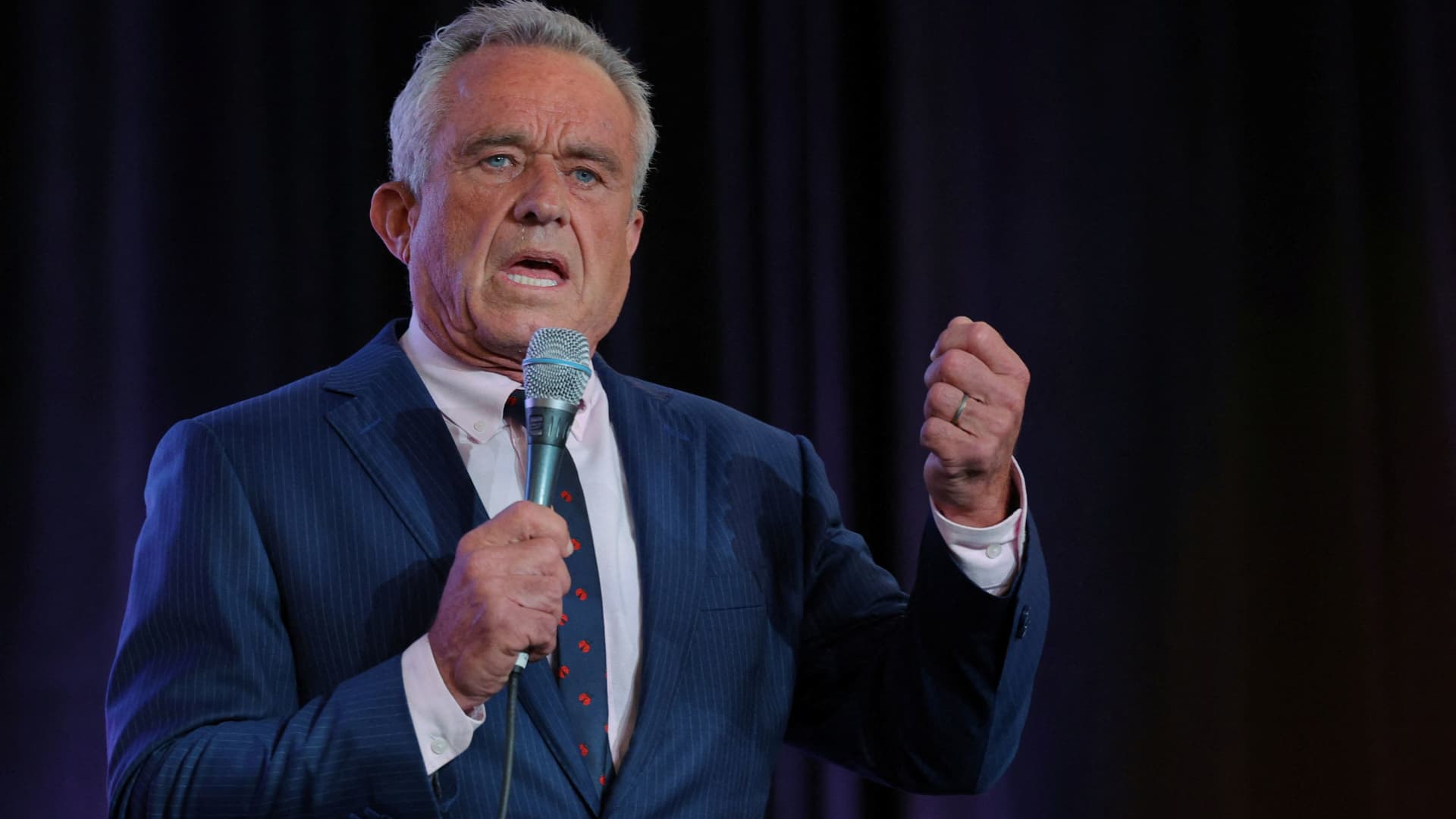Former independent presidential candidate Robert F. Kennedy Jr.‘s name must be removed from North Carolina’s November ballot, the state’s Supreme Court ordered.
The ruling Monday night may help Republican nominee Donald Trump against the Democratic nominee, Vice President Kamala Harris, in the key battleground state, and his chances in the national election.
Trump has a more than 1 percentage point edge over Harris in a head-to-head matchup in North Carolina, according to recent polling averages from RealClearPolling. In a six-candidate race, Harris leads Trump by a .4-percentage point margin in the state.
North Carolina awards 16 Electoral College votes to the winner of the presidential race, a total that could provide the margin of victory in the national election.
The 4-3 decision by North Carolina’s high court came hours after the Michigan Supreme Court ruled that Kennedy’s name had to stay on that state’s ballot over his objections.
Kennedy, who endorsed Trump after suspending his bid for the White House on Aug. 23, said that he would remove his name from ballots in states where Trump performed better in head-to-head races against Harris.
“Our polling consistently showed that by staying on the ballot in the battleground states, I would likely hand the election over to the Democrats,” said Kennedy.
He has a pending lawsuit suit in another swing state, Wisconsin, to remove his name from the ballot there.
In all three states, Trump polls better in a two-candidate race than he does in a six-candidate race.
Monday’s decision in North Carolina upheld a ruling by the state Court of Appeals siding with Kennedy, who had challenged the state Board of Elections after it determined it was too late for him to remove his name from the ballot there.
“Where a ballot contains misleading information or inaccurately lists the candidates, it risks interfering with the right to vote according to one’s conscience,” Supreme Court Justice Trey Allen wrote in the majority opinion.
“If [Kennedy’s] name appears on the ballot, it could disenfranchise countless voters who mistakenly believe that [he] remains a candidate for office,” wrote Allen, who is a Republican.
The ruling criticized the state Board of Elections, which continued printing ballots that included Kennedy’s name “despite being on notice of [Kennedy’s] intention to withdraw his name from the ballot for nearly a week.”
“To a large extent, any harm suffered by defendants in light of the Court of Appeals’ order is of their own making,” Allen wrote.
The state Supreme Court ruling acknowledged “that expediting the process of printing new ballots will require considerable time and effort by our election officials and significant expense to the State.”
“But that is a price the North Carolina Constitution expects us to incur to protect voters’ fundamental right to vote their conscience and have that vote count,” Trey wrote.
The court’s two Democratic Justices Anita Earls and Allison Riggs, as well as Republican Justice Richard Deitz, dissented.
“This decision imposes a tremendous hardship on our county boards, at an extremely busy time,” Board of Election Executive Director Karen Brinson Bell said in a statement on the court’s ruling.”
“But our election officials are professionals, and I have no doubt we will rise to the challenge,” Bell said.
Under state law, elections officials were scheduled to begin mailing out absentee ballots on Friday, but the process was halted by the appeals court decision the same day.
More than 2.9 million ballots had already been printed.
In light of the Supreme Court ruling, county election boards now redesigning and reprinting ballots with Kennedy’s name, the state Board of Election said in a statement Tuesday.
Election officials do not know for certain when absentee ballots will be ready to be mailed out, but expect it to be within the next few weeks, the statement said.
North Carolina officials are also in discussion with the U.S. Department of Defense in case they are not able to meet the federal deadline to mail military and overseas ballots to voters on Sept. 21.
